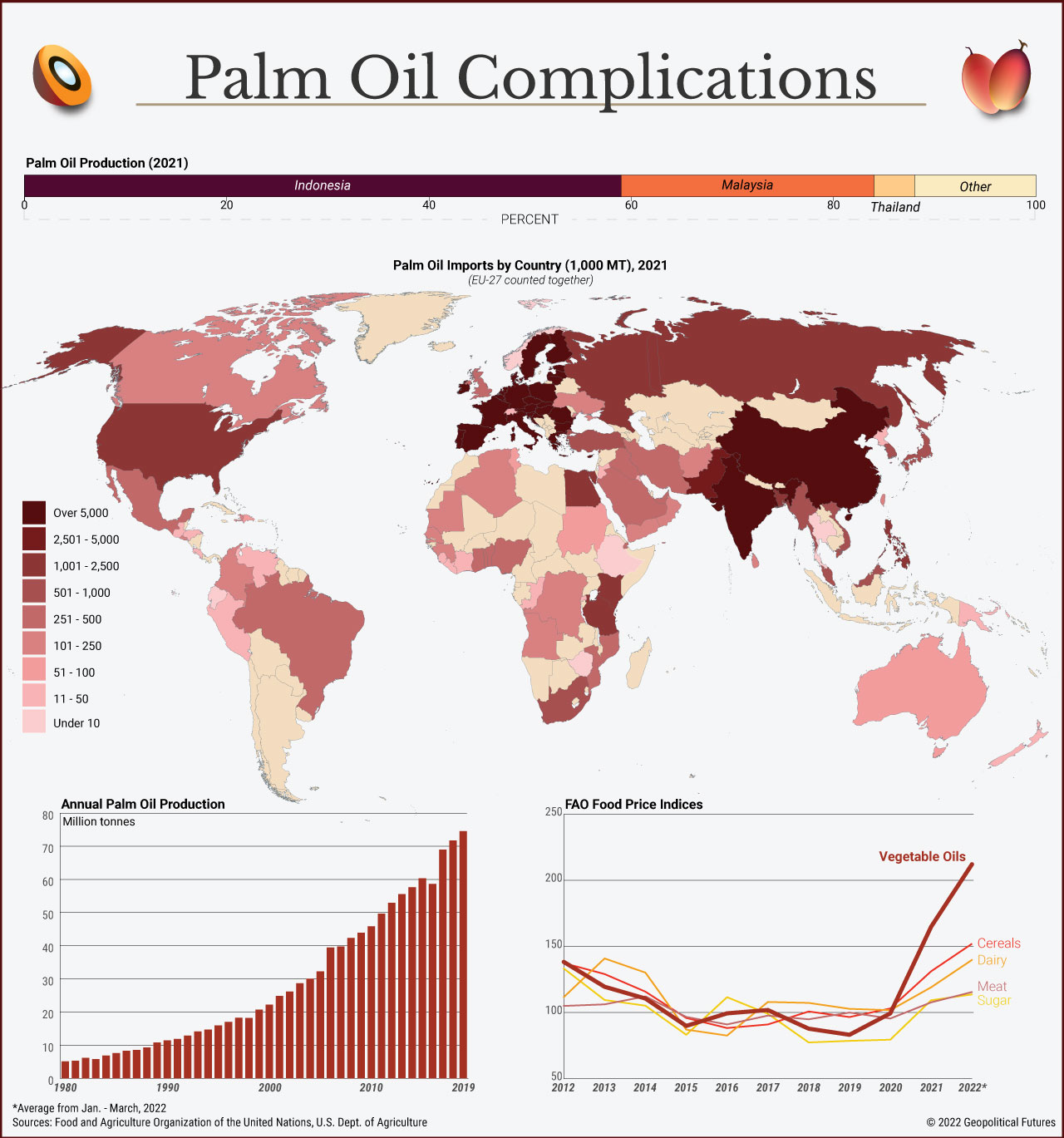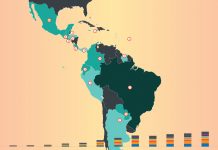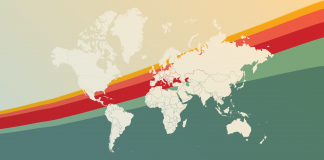Palm oil is an essential good all over the world. It is used not only in cooking but also as an ingredient in food manufacturing, detergents, cosmetics and biofuel. Earlier this week, after a spike in domestic palm oil prices led to shortages and unrest, the Indonesian government expanded its restrictions on palm oil exports to include crude palm oil, RBD (refined, bleached and deodorized) palm oil, and used cooking oil. Jakarta even deployed its navy to prevent illegal exports of palm oil.
Like other food prices, palm oil prices have been rising since the COVID-19 pandemic began. Export restrictions in Indonesia, the largest palm oil producer, will directly contribute to higher food prices globally. This will especially affect African countries, which use palm oil in local cuisine and are extremely vulnerable to price fluctuations. Food expenses in sub-Saharan Africa already account for 40 percent of households’ consumer spending, so it will be difficult to absorb the extra cost. Advanced economies like the U.S. will also see higher prices, notably in processed food products and things like soaps and makeup.







 Special Collection – The Middle East
Special Collection – The Middle East